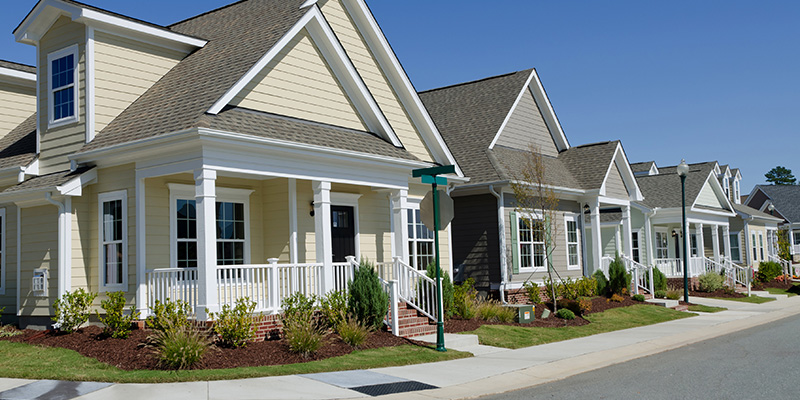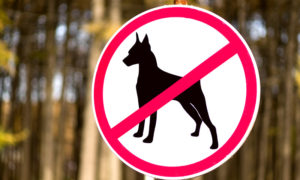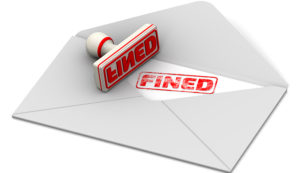What Are HOA Restrictive Covenants?

Anyone who has ever belonged to a homeowners association knows what restrictive covenants are. If you are thinking about purchasing a home within an HOA community, you must understand what these covenants are and how they affect you.
Browse By Category
Sign up for Our Newsletter
Anyone who has ever belonged to a homeowners association knows what restrictive covenants are. If you are thinking about purchasing a home within an HOA community, you must understand what these covenants are and how they affect you.
Understanding the Definition of Restrictive Covenants
What is a restrictive covenant? A restrictive covenant is a type of agreement or obligation that restricts the actions a buyer can make. The term can also apply to real estate. Restrictive covenants in real estate are written legal obligations found within a property’s deed.
Within the context of a homeowners association, the definition of a restrictive covenant remains the same. These are agreements homeowners make with the HOA that restricts how you can use your property. It can cover what you can’t do as well as what you are obligated to do, i.e. maintenance.
The Benefits of HOA Covenants
To an outsider, it might seem like these covenants serve no function, but the truth is far from it. What is the main purpose of restrictive covenants? To understand that, you must first understand what homeowners associations do.
 Homeowners associations exist to maintain the community with the overall goal of preserving property values. Part of its job is to make sure the neighborhood looks appealing and is a good place to live in. This is where restrictive covenants come in.
Homeowners associations exist to maintain the community with the overall goal of preserving property values. Part of its job is to make sure the neighborhood looks appealing and is a good place to live in. This is where restrictive covenants come in.
Restrictive covenants help make the community a better place by outlining how you should and should not use your property. Let’s take one of the most common restrictive covenants and apply it here. Many associations have covenants limiting what color paint you can use for your house exterior. At first glance, it might seem absurd that your HOA would want to control something as trivial as that.
But, house color is not trivial at all — at least not when it comes to curb appeal. When rows of houses have a coordinated look, it can add to the aesthetic appeal of the neighborhood. This, in turn, can lead to higher property values.
Another benefit of a restrictive covenant agreement is it allows for easy dispute resolution. Most associations clearly define what kind of behavior is allowed in the community. A neighbor with a barking dog or who loves to throw all-night ragers can disrupt your quiet enjoyment of your property. Luckily, your HOA can step in to handle the situation.
The Problem With HOA Covenants
The disadvantages of HOA covenants, though, are also obvious. As a homeowner, you naturally want to have control over your own property. But, the existence of these covenants can impede that. If you move into a community run by an HOA, you will have to follow these covenants or face penalties.
In a few cases, an association may even have the authority to enter your property without permission. This usually happens when there is a covenant violation you refuse to remedy.
Restrictive Covenant Types
There are two primary types of association covenants you might encounter as a homeowner — property use restrictions and required maintenance. Let’s take a closer look at each one below.
Property Use Restrictions
Property use restrictions are the most common type of restrictive covenants. In fact, a majority of HOAs have at least one restrictive covenant that refers to property use. These covenants tell you what you can and can’t do with your property. Again, this all circles back to how your property looks as part of a bigger picture. Homeowners associations want to maintain a certain aesthetic, and restricting property use is the way they accomplish this goal.
Many associations establish Architectural Control Committees that help maintain the uniformity of the community. These committees inspect properties for violations, update architectural guidelines, and oversee the architectural review process. If you want to change the color of your house or add a new shed to your property, you will likely need to go through the ACC.
Required Maintenance
Apart from limitations on property use, restrictive covenants can also cover your obligations as a homeowner. These obligations usually have to do with maintenance. Your association might require you to mow your lawn a certain number of times per week or trim your trees every now and then. Some HOAs entrust this job to homeowners, while others provide maintenance services as part of your dues.
Common Examples of Real Estate Covenants
Restrictive covenants can vary from association to association. But, there are some that are more common than others. Here are some restrictive covenants examples you should know about:
- House Color. This is perhaps the most common restriction across all associations. Some HOAs dictate specific colors homeowners can and can’t use, while others only accept varying shades of a particular color.
- Exterior Construction. Adding a fence or new garage to your property? Wait just a minute, because your HOA might have rules concerning exterior constructions. Many associations ask you to go through an approval process, complete with submissions of your design, while others prohibit constructions entirely.
- Rental Use. Some associations have covenants restricting a homeowner’s ability to lease or rent out their home. An HOA may only allow you to lease your property for a specific number of months or not at all.
- Business Use. Many HOAs don’t allow members to convert their homes into a business. Of course, that does not mean you can’t work from home or use an extra room as a home office. But, if it starts bringing in more traffic, you might have a problem.
 Pet Policy. There are associations that have strict no-pets policies, but there are also ones that only impose reasonable restrictions regulating the species, breed, weight or size, and the number of pets you can keep. Keep in mind, though, that state law may also play a role here. For instance, California law does not allow HOAs to prohibit homeowners from keeping at least one pet.
Pet Policy. There are associations that have strict no-pets policies, but there are also ones that only impose reasonable restrictions regulating the species, breed, weight or size, and the number of pets you can keep. Keep in mind, though, that state law may also play a role here. For instance, California law does not allow HOAs to prohibit homeowners from keeping at least one pet.- Vehicle Regulations. In addition to pets, your association might regulate how many vehicles you can have, what types you can keep, and where you can park them.
Restrictive Covenants Real Estate FAQs
Are restrictive covenants enforceable?
Generally speaking, homeowners associations can legally enforce restrictive covenants. But, there are certain exceptions to this rule. A covenant is unenforceable if it:
- Was not enacted according to the proper procedures;
- Violates homeowners’ rights;
- Violates federal or state laws;
- Is enforced in an inconsistent or arbitrary manner; and/or,
- If the HOA’s governing documents do not give it the power to enforce it in the first place.
How do you get around restrictive covenants?
Since covenants are binding legal agreements, there is really no way to get out of them short of leaving the association itself. If a covenant is too strict or unreasonable, homeowners can bring it to the HOA board’s attention. As a result, the board can try to amend the covenant.
What happens if you breach a restrictive covenant?
 Homeowners associations deal with covenant violations in differing ways. The most common penalties you can face, though, are monetary fines, suspension of member privileges, lawsuits, and even foreclosure. It is important to check your state laws and governing documents to see what consequences you can expect as a result of breaching a restrictive covenant.
Homeowners associations deal with covenant violations in differing ways. The most common penalties you can face, though, are monetary fines, suspension of member privileges, lawsuits, and even foreclosure. It is important to check your state laws and governing documents to see what consequences you can expect as a result of breaching a restrictive covenant.
How long do restrictive covenants last?
In general, restrictive covenants don’t expire unless there is a written expiration date. Restrictive covenants that run with the land — meaning they are attached to the land itself and not the structure built on it — continue to live on for an indefinite period, even if the property is sold off to another owner.
The Pros Outweigh the Cons
Restrictive covenants can interfere with the way you use your property, but they do serve a purpose. Homeowners associations use them to maintain consistency, improve curb appeal, and protect property values. Before buying a house in an HOA community, it is imperative to first find out what restrictions lie ahead of you. But, you should also understand that these restrictions can increase the value of your property and are, thus, ultimately beneficial.
Enforcing restrictive covenants as well as rules and regulations is not always easy. This is why many homeowners associations turn to an HOA management company for help. Finding the right management company, though, is often time-consuming. Streamline your search process today with the help of our online directory.
RELATED ARTICLES:
- What Are Unenforceable HOA Rules? What To Do About Them?
- Should You Live In A Deed Restricted Community?
- What Are HOA Covenants Anyway? Why Is It Important?
Trending Now
Related Article
Sign up for Our Monthly Newsletter
Sign up below for monthly updates on all HOA Resource















